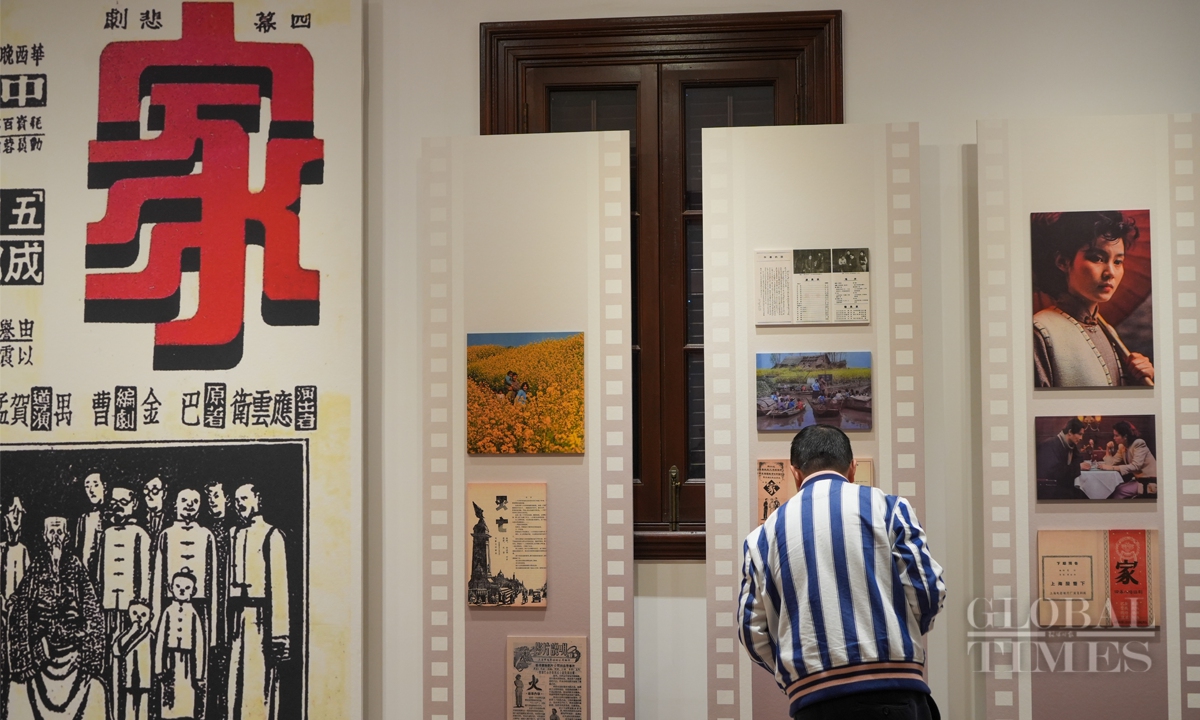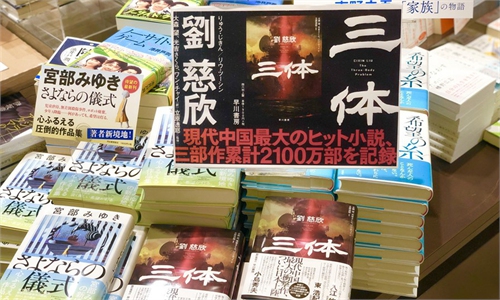ARTS / CULTURE & LEISURE
Library, exhibitions commemorate 120th anniversary of Ba Jin’s birth

Photo: Lu Ting/GT
"If there's a secret to writing, it's to give your heart to the reader." These words, penned by renowned Chinese writer Ba Jin in one of his essays, continue to resonate with readers today. To commemorate the 120th anniversary of the writer's birth, the Shanghai Literature Museum opened its new Ba Jin Library to the public on Monday.Ba Jin's influence is intangible yet omnipresent, Zhou Limin, a deputy director of Ba Jin's Former Residence and vice president of the Ba Jin Research Society, told the Global Times.
"In my youth, I was greatly moved by his emotional impact. Now, when I revisit his works, they provoke deeper rational thought," Zhou said. Reflecting on his repeated reading of the novel The Family, he noted that it prompted him to explore how Ba Jin's generation addressed historical challenges and how the May Fourth Movement's legacy should be regarded today.
Alongside the library's opening, an exhibition presenting Ba Jin's life in Shanghai also debuted. Integrating public cultural services such as exhibitions and reading spaces, the exhibition showcases Ba Jin's literary creations, cultural activities and social achievements in Shanghai across five galleries.
"I had only read The Family before, but seeing the other aspects of his life and work here, I can only describe it as 'greatness,'" Liu, a 26-year-old visitor, told the Global Times. "Exhibitions like this are especially meaningful for members of the young generation like us, helping us understand more about the details of his works."
Ba Jin was born in 1904 in Chengdu, Southwest China's Sichuan Province. He later moved to Shanghai, and his works helped him become known as the "Conscience of 20th-century Chinese literature." He passed away in 2005.
His seminal works, including the Torrents Trilogy of the Family, Spring and Autumn, deeply critique the flaws of feudal family dynamics while capturing the awakening of youth during a time of social transformation. Other celebrated works, such as Fog, Rain, Lightning, have also garnered widespread acclaim.
Throughout his life, Ba Jin dedicated himself to literary creation and translation, fostering cultural exchanges between China and the world. He was honored with the title of "People's Artist" in his later years for his extraordinary contributions to Chinese literature.
Li Yi, dean of the School of Literature and Journalism at Sichuan University, highlighted Ba Jin's global perspective in his works.
"From the very beginning, his ideas in literature were oriented toward the world. His early involvement in Esperanto activities reflected his effort to connect China with the world and achieve deep exchanges through language," Li told the Global Times.
A series of events, including archival exhibitions, forums for young writers, and a book donation showcase, also commemorate Ba Jin's legacy. The exhibitions combine letters, manuscripts, photographs, and articles, vividly presenting Ba Jin's life and work during his time in Shanghai's Xuhui district.
In his later years after moving to Shanghai, Ba Jin donated thousands of books, manuscripts and letters, and 150,000 yuan ($20,700) in royalties to support the establishment of the National Museum of Modern Chinese Literature in Beijing.
"Building the National Museum of Modern Chinese Literature is the last task of my life," Ba Jin once said.
"I am willing to dedicate my remaining energy to it. It is a rich treasure house of the Chinese people's spirit, enhancing our national pride and deepening our understanding of our cultural identity."
Today, Ba Jin's works continue to captivate readers of all ages, fostering a shared appreciation for literature and renewed connection to timeless classics.
"Ba Jin, as both a thinker and writer, has spent his life in pursuit of ideals, honesty, and love," Li remarked.
"In today's fast-paced life, where anxiety and confusion often disturb us, his commitment to honesty and love is a red line that we must collectively uphold in this era."



